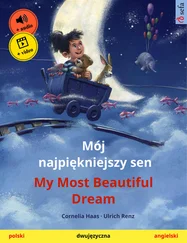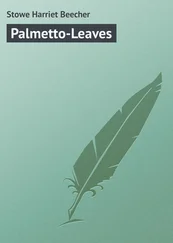On July 5—I remember the date because I watched Peter Dykstra take down from the apothecary window an American flag he’d displayed on Independence Day — Robert Boxer brought his grandmother to the bookmobile. She had just been in the apothecary with my father, her grandson Robert, and her son-in-law Peter Dykstra. I saw my father step outside, walk down the street, and stand by the bus stop about a block away. Mrs. Boxer was quite large, about sixty-five years of age, I’d guess, and confined to a wheelchair, so Robert had to carry her up the three steps. He was strong, but it definitely took some effort. At the landing, she said, “Now, see, Robert, aren’t you glad I don’t eat those Snickers bars like I used to?” Robert started laughing so hard he almost dropped his grandmother, but he kept his balance, navigated to a bench, and set his grandmother down on it. He sat next to her, catching his breath. “My grandmother’s doing deliveries with me today,” Robert said to me and Pinnie Oler.
“I’m keeping on my church hat,” she said. “It’s good for these hot sunny days and I am easily flushed. And if my blood heats up too much, well, my grandson Robert can tell you, I have been known to faint.”
“You’re strong as a horse, Grandma,” Robert said. “I don’t know why you present yourself this way all the time. I’ve never seen you faint.”
“Heat stroke, it’s called,” Mrs. Boxer said. “And the only reason, Robert, you have not seen me faint from it is because you never happen to be there.”
“My loving pharmacist father says you’re generally in very good health,” Robert said.
“My own mother lived to be one hundred and two,” she said.
“I’ve heard that rumor,” Robert said. “I’ve heard that rumor a thousand times.”
Naturally, Pinnie offered Mrs. Boxer a Nehi orange, which she accepted. Mrs. Boxer, Pinnie, Robert, and I were all drinking Nehi orange. “This bookmobile’s a regular speakeasy,” she said, but I didn’t know what a speakeasy was. Once she got settled with her drink, Mrs. Boxer started in on “the man who’s always at the counter.” I quickly realized she was referring to my father, though she didn’t know the man was my father; nobody knew he was my father except for me. “Every time our church’s station wagon delivers me to visit Robert at work, that man’s there. Well, maybe not every time, but almost. Yes, sir, just about every time. I don’t know, there’s something uncomfortable about him. O vale of sorrows, O Lord in heaven, forgive me for speaking with suspiciousness toward a man living or dead, but this man — he’s a snake charmer. Yes, sir, he could charm a snake.”
I was feeling humiliated at this point. I started to page through a book of photographs of polar bears and Eskimos and stark landscapes.
“That’s not how you raised me to talk,” Robert said. “You’re becoming what you say you didn’t like about your own mother in Alabama, Grandma. An old back-porch gossip. Larry’s never been anything but friendly to me. He’s got a name, by the way. Larry.”
Pinnie adjusted the dashboard fan so Mrs. Boxer could benefit more from it.
“Larry might be unemployed,” Pinnie said. “Just because he dresses like a toothbrush salesman doesn’t mean he’s employed selling toothbrushes.” Truth was, I had no idea what my father did for a living. Maybe he did sell toothbrushes.
“That’s also true,” Mrs. Boxer said. “It’s my son-in-law I’m worried about, though. Peter’s a good man, but he shouldn’t agree with all this man’s opinions — is my opinion.”
“He’s got opinions. He’s got opinions. And some are excitable. But Larry speaks like a very well-educated man, Grandma,” Robert said. “Okay, he’s maybe uncomfortable, like you say. However you mean that.”
“I’ve never once heard him say anything personal about his life,” Mrs. Boxer said. “Such as, does he have a wife, does he have a family? Nothing.”
“Well,” Pinnie said, “if he doesn’t have a wife and family, he’s not going to mention them, is he?”
There was agreement on this sentiment all around. Everyone drank their Nehi oranges in silence. Then Mrs. Boxer looked at me and said, “Did you ever meet this Larry? Come to think of it, Howard, I’ve never seen you inside the apothecary, come to think of it. You’re either in this bookmobile or you’re standing next to this bookmobile.”
“I’ve seen him through the window,” I said.
“Not quite the same thing as being in a room with somebody, Lord knows,” Mrs. Boxer said.
“Maybe he’s got no other daytime place to go,” Pinnie said. “It’s a free country, as long as he pays for his coffee.”
The conversation moved on.
During a mid-July stop in front of Union High School, a man returned a book on interlibrary loan, North American Indian Waterfowl Traps, Weirs, and Snares. At such moments, the basic transaction of borrowing or returning, I would often attempt to be a student of people. I’d scrutinize a face, size up a person, make a private assessment, indulge in speculation as to what sort would be interested in this or that particular book. I’d even speculate about which room a person read in at home — kitchen, living room, bedroom, screened-in porch — and other sorts of domestic tableaux, attempting to think narratively, to put each person at the center of the story of his or her life.
One day Pinnie caught me exhibiting a severe frown, part of an overall expression of doubt toward a borrower, a woman who was teaching a summer course at Union High. Soon after this teacher left the bookmobile, he said, “That look you get on your face, it isn’t exactly welcoming. It doesn’t fit the etiquette of my bookmobile. You squint like you’re trying to hypnotize somebody. You should see yourself. Goodness sake, the person’s just returning a book. You make it like you want to sit them down in an empty room at the police station. You know, bare light bulb overhead. ‘Sir — ma’am — why’d you choose that particular book, anyway?’ Like every day’s an episode of Dragnet. Try and stop doing that, okay?”
That evening, without officially noting on an interlibrary loan form that it had been punctually returned to the bookmobile, I slipped North American Indian Waterfowl Traps, Weirs, and Snares into my weather-beaten knapsack, in there with the tangerine peels from my lunch. I didn’t want to wait for the book to go through channels before I could study it. I stopped to sit on a park bench on my way home. After a quick perusal of some of the illustrations, I was hooked. I immediately felt the excitement of trying, as soon as possible, to apply ancient, “well-traveled” techniques of capturing ducks — maybe even a swan — to my almost nightly visits to Reeds Lake in Ramona Park. Reeds Lake was my secret haunt that summer.
While I wasn’t legally sanctioned to drive until I was sixteen, truth be told I drove a car nearly every night. I’d been anxious to drive. (In the bookmobile I’d read enough of On the Road by Jack Kerouac to grasp its hipster restlessness as a possibility for me, say, a year or two down the line. What’s more, I’d secretly put Maynard G. Krebs, the stereotypical beatnik character on The Many Loves of Dobie Gillis , with his goatee, his unkempt clothes, and laid-back cool, in the same light. Kerouac and Krebs were my earliest icons of an independent life.) In fact, I’d already purchased a beat-to-crap 1960 Ford, whose grille had been stove in by a pickup truck and never repaired. I didn’t care. That car represented my future, sitting day and night in my driveway. It had cost $200. Paris Keller helped me out there. I had only mentioned my desire to own it and she loaned me $150. She even went to East Grand Rapids to take it for a test drive, telling the owner she herself was interested in buying it. I suppose that had some truth to it, since she was the one who signed the bill of sale, and, the next day, she transferred the title over to my name. I had no idea how to thank her.
Читать дальше












